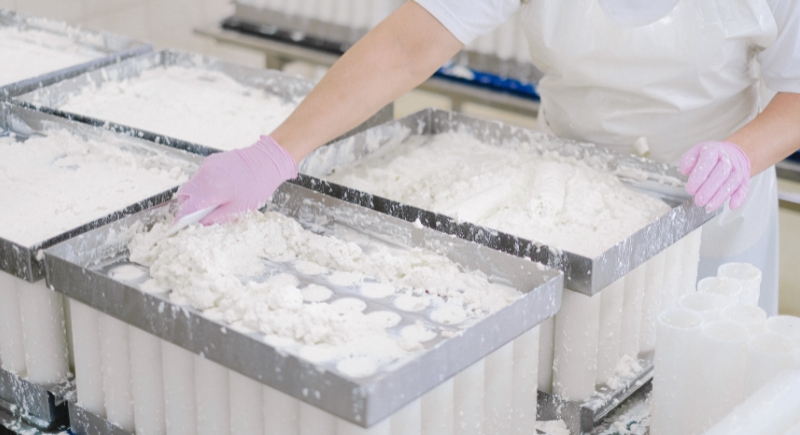20 Businesses That Thrive in Recession
Some businesses slow down the moment the economy takes a hit. Others keep moving, and they tend to offer things people can’t really skip, even when budgets shrink: healthcare, food, repairs, basic services. The reason these businesses hold steady is that they’re built around needs. That’s why they keep going when everything else feels uncertain. Here are 20 types of businesses that tend to stay strong during a recession.
Health Care

Credit: Getty Images
You can cancel the vacation, but you’re not ignoring chest pain or skipping your kid’s ear infection. Healthcare isn’t something people put off for long, no matter what’s happening in the economy. The Bureau of Labor Statistics projects steady growth in this sector through 2032, driven by aging populations and ongoing needs like prescriptions, diagnostics, and elder care.
Grocery Stores

Credit: Getty Images
During a recession, grocery stores see more traffic. People eat at home more and look for foods that are affordable and long-lasting, like rice, pasta, canned goods, and frozen vegetables. Meal planning shifts toward simple, practical choices. Instead of cutting food entirely, shoppers change how and where they buy.
Cleaning Services

Credit: Getty Images
Businesses, medical offices, and schools maintain cleaning contracts to meet hygiene regulations. The pandemic reinforced how essential disinfection is, and that focus has stuck around. Demand remains steady, particularly for commercial and deep-cleaning services.
Auto Repair

Credit: Getty Images
A lot of people avoid big purchases when the economy shifts, and a new car is usually one of the first things to drop off the list. But worn brakes and engine trouble can’t wait. Repairing an old car often feels like the smarter move, especially when budgets are stretched. Mechanics stay in demand because keeping a car running costs less than replacing it.
Discount Retailers

Credit: Getty Images
Price-sensitive consumers drive revenue at discount chains when budgets shrink. Instead of buying less, many shoppers switch to lower-cost alternatives for essentials like toiletries and household goods. Stores like Dollar General and Aldi often report growth during recessions as people prioritize affordability over brand names.
Financial Advisors and Accountants

Credit: Rido
When the market takes a hit and layoffs make headlines, people start looking for help. Financial advisors and accountants hear from clients who suddenly want to track every dollar, rethink their investments, or sort out debt. Tax season adds another layer. Even people who normally go it alone often decide it’s worth getting expert advice.
Childcare and Baby Products

Credit: Getty Images
Recession or not, babies are born, and once they’re here, the needs don’t stop. Formula, diapers, baby wipes, safe cribs, and childcare arrangements are all part of the deal. Grand View Research projects steady annual growth in the global baby product market through 2030.
Utilities

Credit: Canva
Utility bills don’t disappear when money’s tight. People might turn down the heat or switch off lights more often, but electricity, water, gas, and internet stay essential. These are the last bills most households will skip. On the investment side, utility companies tend to stay steady when other sectors are shaky, which keeps them in the mix for cautious investors.
Online Selling and E-Commerce

Credit: pexels
When traditional retail suffers, online sales often gain ground. Platforms like Amazon and Etsy enable small sellers to reach broad audiences without high overhead. U.S. Census Bureau data shows that e-commerce grew 43% during the pandemic, and many of those habits have persisted post-crisis.
Pet Services

Credit: Getty Images
People who own pets rarely consider their food, grooming, and vet visits as negotiable expenses. Even during recessions, they find a way to care for their animals. And with remote work sticking around, demand for pet-sitting and dog-walking hasn’t exactly dropped off either.
Courier and Delivery Services

Credit: Africa images
Behind every online order, there’s a delivery driver hustling to get it to your door. Even when the economy is slow, goods still need to move. Plus, with e-commerce on the rise, delivery has become a part of everyday life.
Beauty and Grooming

Credit: pexels
Even when people cut back, they still get a haircut or pick up a low-cost moisturizer. Basic grooming is a part of staying presentable and staying sane. Small purchases like drugstore makeup or skincare offer comfort without straining the budget.
Freelancing and Gig Work

Credit: pexels
Companies often cut full-time staff during downturns and turn to freelancers to fill gaps. Meanwhile, individuals looking to pad their income start gigging, which includes writing, designing, tutoring, and delivering. The flexibility and low startup cost make freelance work a go-to option when the job market gets weird.
Technology Support

Credit: SeventyFour
Tech issues don’t wait for a better economy. Companies still need working systems, secure networks, and quick fixes when things go wrong. Remote work only adds to that pressure. Whether it’s a small business or a large firm, IT support stays on call to ensure that the operations run smoothly.
Debt Collection Agencies

Credit: studioroman
When incomes drop and bills pile up, more accounts go unpaid. That’s when debt collectors get busy. Lenders, landlords, and service providers turn to agencies to chase what’s owed. It’s not a pleasant business, but it’s one that grows when the rest of the economy contracts. The worse things get, the more work there is.
Property Management

Credit: Prostock-studio
Economic hardship often pushes people toward renting rather than buying. Property managers handle maintenance, rent collection, and tenant issues. Steady occupancy and long-term leases contribute to this industry’s durability.
Home Repair and Contracting

Credit: Canva
Even if you’re not springing for granite countertops this year, certain repairs can’t wait. Contractors who handle the essentials tend to stay booked. Recession or not, people don’t want to live in broken homes.
Sanitation Product Manufacturing

Credit: pexels
The run on toilet paper in 2020 was a preview of what happens when health concerns rise. Disinfectants, hand soap, paper goods, and cleaning supplies don’t go out of style. Manufacturers of these everyday essentials often see a steady climb in demand, no matter how the markets behave.
Freight and Logistics

Credit: Getty Images
If you think supply chains stop for a recession, think again. Groceries, electronics, medicine, and even mail all have to be shipped. Logistics companies keep goods moving, adjusting routes and timelines to stay nimble. When people tighten their budgets, they still expect their stuff to arrive on time.
Dating Platforms

Credit: pocstock
Turns out, love doesn’t take economic breaks. In fact, when social calendars shrink and people spend more time at home, online dating often picks up. Swiping and chatting cost a lot less than a night out, and apps keep people connected and hopeful, even when everything else feels a bit shaky.